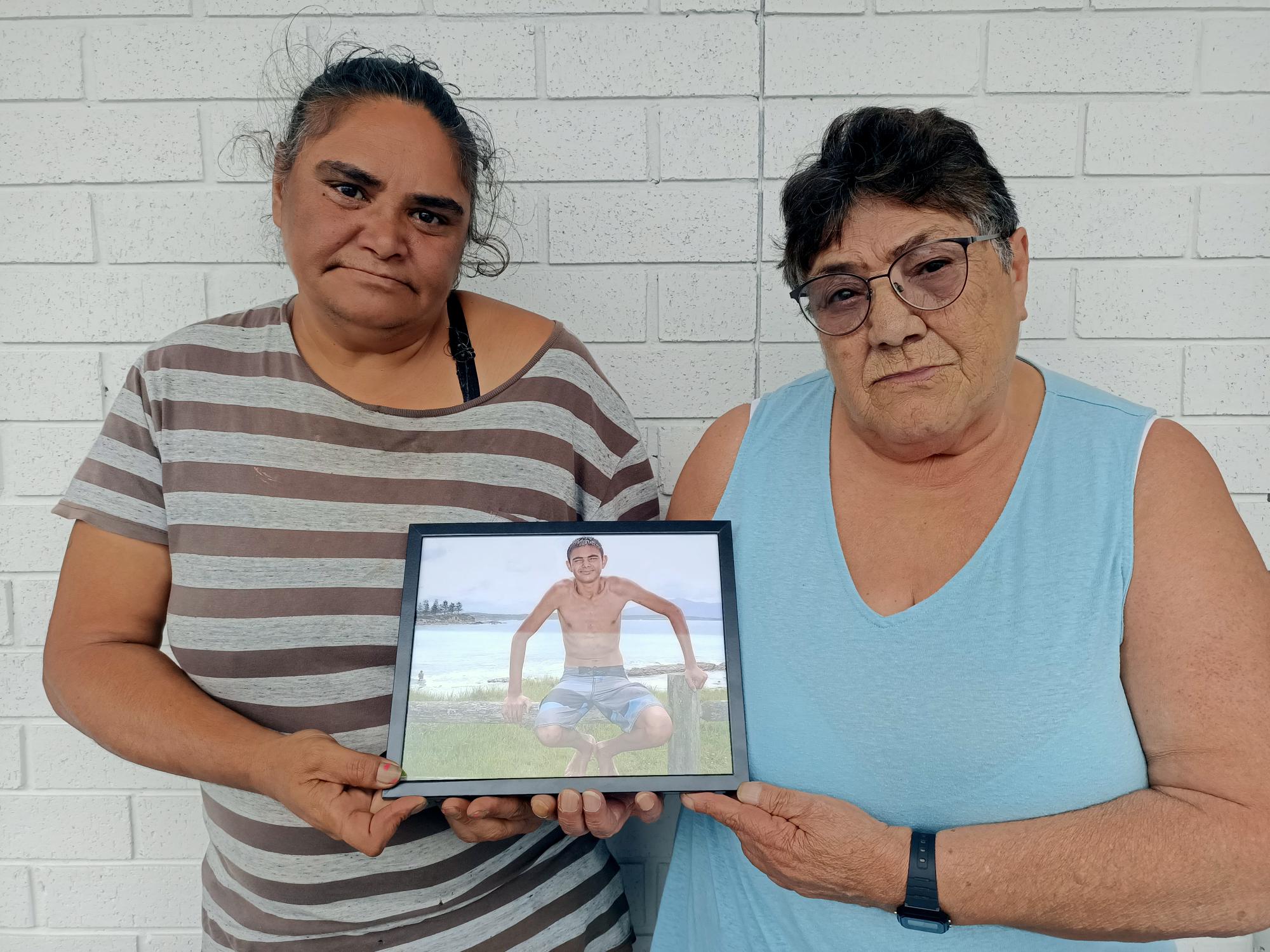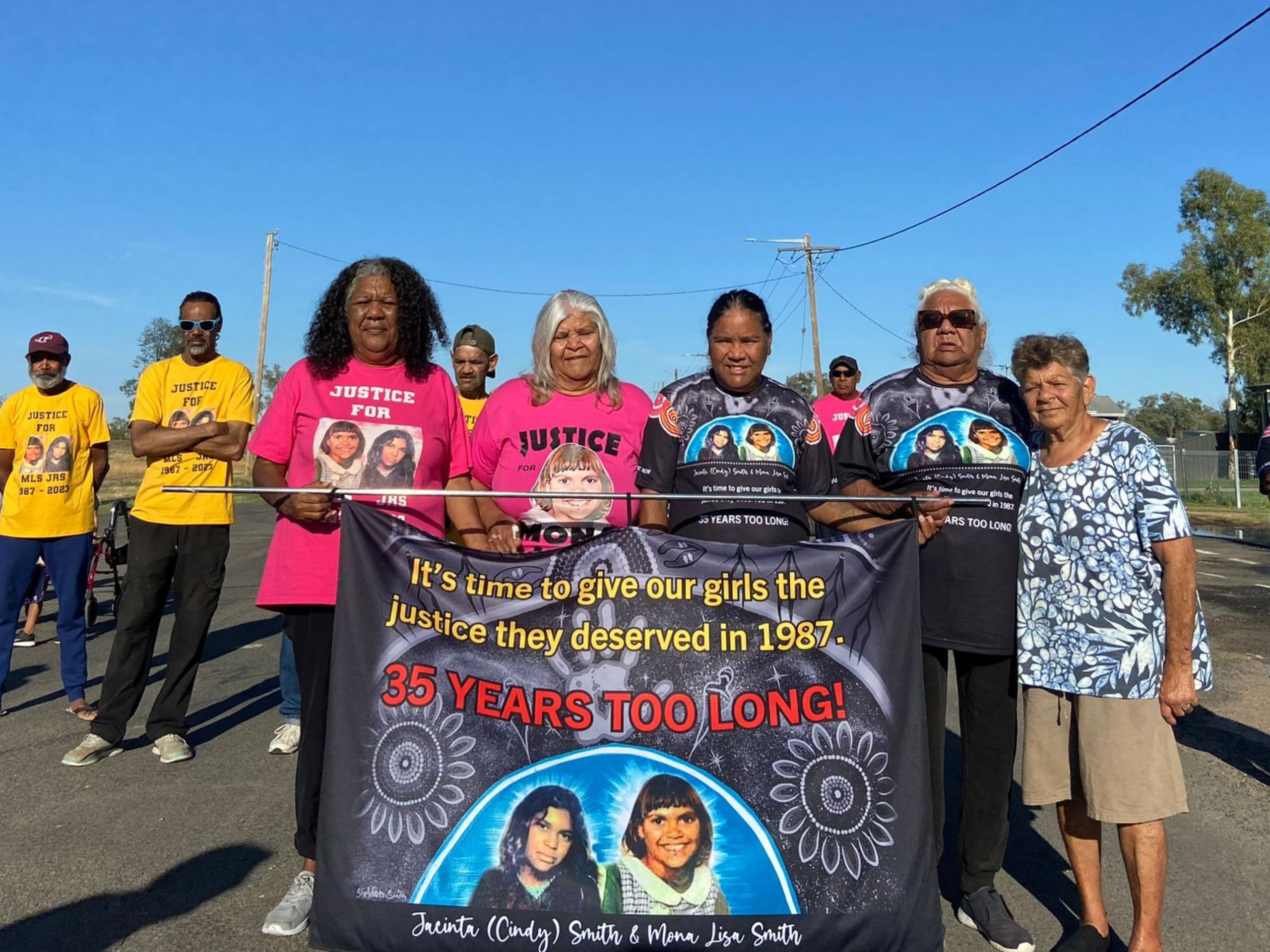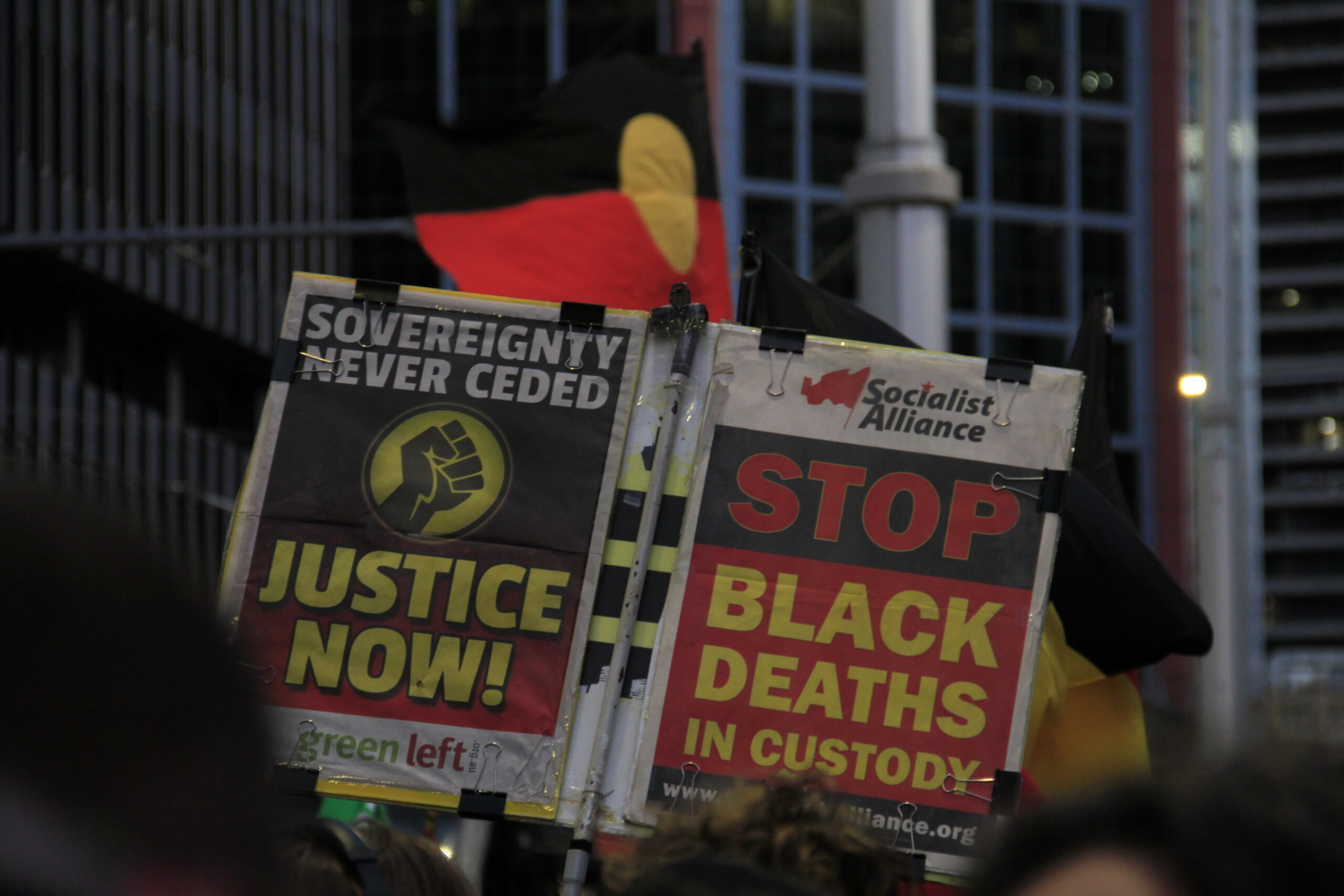Content Warning: Aboriginal and Torres Strait Islander readers are advised this story contains the image and name of a Yuin-Dunghutti-Tharawal person who has passed away.
The family of George Campbell, a Yuin-Dunghutti-Tharawal teenager who died in the care of NSW Department of Communities and Justice (DCJ), say that more could have been done to provide cultural connection for their son before he went missing and died in March 2018.
George’s family are disappointed by the lack of reform:
Responding to a coroner’s findings into the death of her son, the family of George Campbell (mother Karen Campbell, grandmother Fay Campbell, uncle Rodney Kelly) expressed disappointment in the absence of recommendations to change DCJ, saying: “A lot more needs to be done. We need our own services and our own people looking after our kids, not the colonial system of out-of-home-care.”
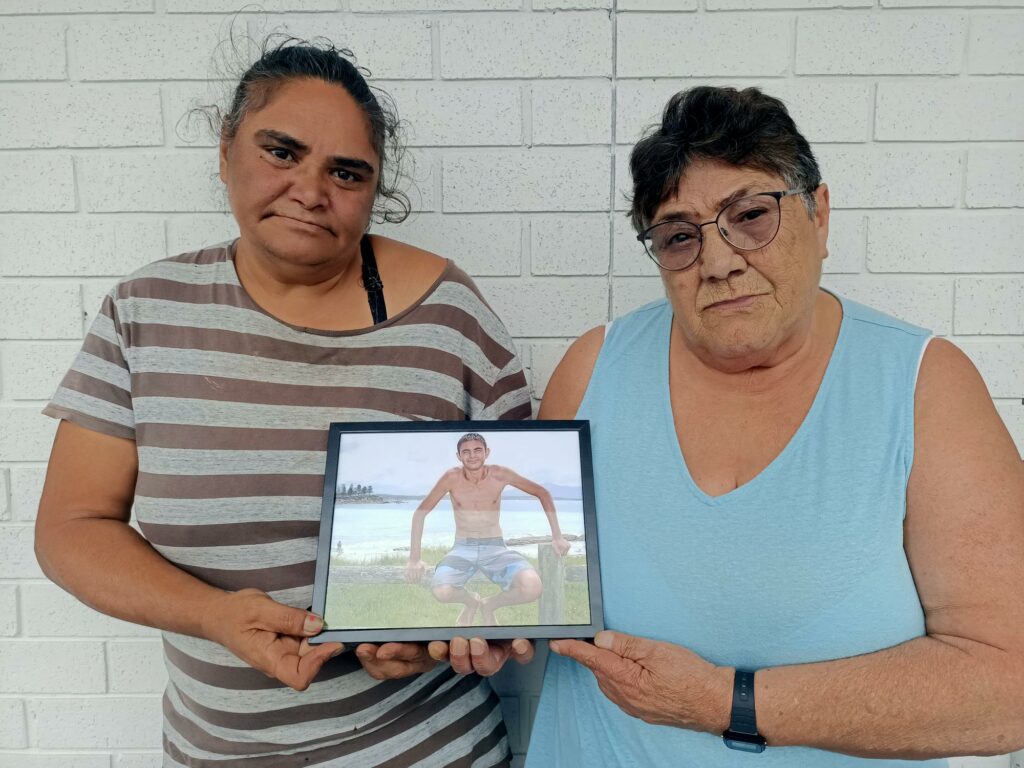
Above: George’s mother Karen Campbell (L), and George’s grandmother Fay Campbell (R) stand with a picture of George before the coronial inquest.
“We need some accountability for George, because the Minister and their people should have taken proper care of George. It is a terrible thing to have happened, it shouldn’t happen to any mother.”
George’s mother, Karen Campbell, said:
“If George was allowed to interact with his family, maybe things would be different today. My son would still be here if things had been done properly.”
Karen campbell, george’s mother
Coroner says First Nations kids deserve cultural connection in care:
The NSW State Coroner, Magistrate Teresa O’Sullivan, has found that: “George required culturally appropriate, careful, and intensive supervision if he was to have a reasonable chance of successfully achieving some measure of stability in adult life.” [Paragraph 122]
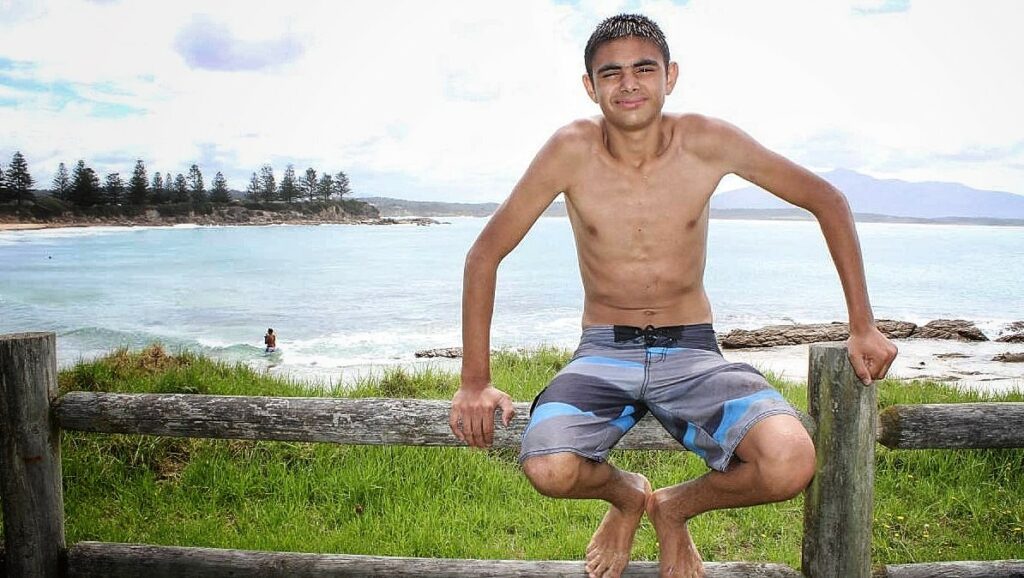
Above: George Campbell. Photo used with permission of author, Alasdair McDonald.
The coroner drew attention to the failings of DCJ to provide George Campbell with the culturally-safe care he needed, saying: “I acknowledge the concerns expressed on behalf of Karen [Campbell] and agree… that a cultural plan is integral to the immediate and lifelong social and emotional wellbeing of Aboriginal and Torres Strait Islander children and young people and should actively facilitate their connections to family, kin, community, Country and culture.” [Paragraph 185]
How the system is failing kids like George Campbell:
Advocates from the National Justice Project, a human rights law firm representing the family of George Campbell, have said that more needs to be done to provide culturally-safe care to First Nations youth in state care. George Newhouse, Principal Solicitor of the National Justice Project, said:
“The status quo is failing young people like George. Aboriginal children are relying on DCJ to do its job properly. There are lives at stake.”
George Newhouse, CEO & Principal Solicitor
“We welcome efforts within DCJ to improve cultural safety, but the department needs to back up its commitments with the human and financial resources to secure culturally safe care for the 6,661 First Nations children in its care.”
“Every effort should be made to support First Nations families and reduce the numbers of First Nations children in state care. Services to Aboriginal children should be provided by independent First Nations organisations, as it is obvious that DCJ cannot do its job.”
In its submissions to the coroner, the National Justice Project argued that George Campbell’s cultural plan was inadequate, did not take into consideration George’s own desires and aspirations, and did not have any accountability in place to ensure it was delivered.
Actions speak louder than words:
A 2019 independent report, Family is Culture, found that the out-of-home care (OOHC) system administered by the DCJ lacks cultural competency and trauma-informed approaches. It made 125 recommendations to address the issues in the child protection system.
In a May 2022 report to the Office of Children’s Guardian, the DCJ admitted to failing to implement the key reforms to which it had committed, saying that it lacks the financial and human resources required to implement the changes.
